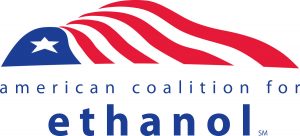 The American Coalition for Ethanol (ACE) this week set the record straight on the Renewable Fuel Standard (RFS) “Set” Rule, countering biased allegations made concerning the greenhouse gas emissions (GHG) impacts of corn starch ethanol.
The American Coalition for Ethanol (ACE) this week set the record straight on the Renewable Fuel Standard (RFS) “Set” Rule, countering biased allegations made concerning the greenhouse gas emissions (GHG) impacts of corn starch ethanol.
ACE CEO Brian Jennings responded to comments by the Environmental Protection Agency (EPA) Science Advisory Board (SAB) workgroup in a letter to Administrator Regan in preparation for the SAB’s September 21-22 public meeting.
Although the SAB does not have statutory authority to promulgate EPA regulations, Jennings refutes the misleading claims made by the RFS workgroup centering on the degree to which corn starch ethanol reduces lifecycle GHG emissions compared to gasoline.
The SAB workgroup letter makes the outrageous claim that corn starch ethanol may not meet the necessary scientific requirement of having no more than 80 percent of the lifecycle GHG emissions of gasoline. In fact, corn starch ethanol greatly exceeds the necessary scientific requirements as demonstrated by the best available lifecycle science (via the GREET model), which shows corn starch ethanol is at least 50 percent cleaner than the GHG emissions of gasoline on average.
“There is no fact-based debate regarding the lifecycle GHG emissions of corn starch ethanol compared to gasoline,” Jennings stated in ACE’s response. “To the degree debate exists at all, it is not vigorous, unless one takes into consideration the vigor of misinformation campaigns orchestrated by various groups who are self-interested in their opposition to ethanol.”










